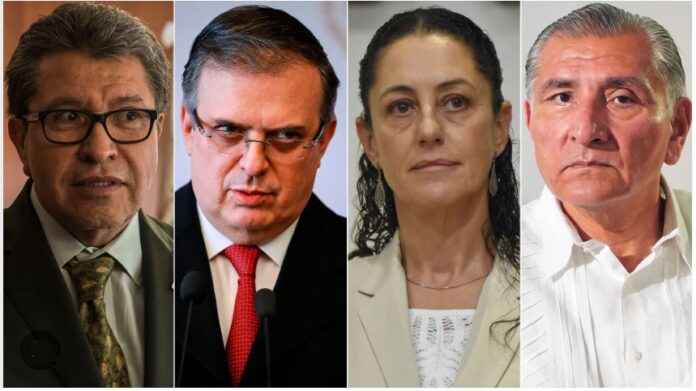On a recent Friday evening Mexico’s president sat in the National Palace, flanked by four candidates to succeed him, and addressed ruling coalition lawmakers who were mired in a days-long stand-off with the opposition. Senators from Andrés Manuel López Obrador’s Morena party said the get-together in late April was a benign encounter between colleagues. Opposition lawmakers and political analysts said the events following the shutdown of the Senate — caused by an opposition protest in support of the country’s transparency body — were a sign of López Obrador’s power over the legislature.
Senators from Andrés Manuel López Obrador’s Morena party said the get-together in late April was a benign encounter between colleagues. But within hours, the lawmakers had set up an improvised legislative chamber in a nearby building and passed 20 new laws — without the opposition present. Opposition lawmakers and political analysts said the events following the shutdown of the Senate — caused by an opposition protest in support of the country’s transparency body — were a sign of López Obrador’s power over the legislature.
They also indicate his government’s increasing willingness to push constitutional limits in a drive to cement his legacy ahead of elections next year. The old-school leftist leader, widely known as Amlo, must relinquish the presidency at that point under Mexico’s limit of a single six-year term. “I think he is radicalizing,” said Humberto Beck, Professor at El Colegio de México’s Center for International Studies. “What is behind this is his conviction that his electoral support is . . . more important than any other part of Mexican democracy.”
In recent months, López Obrador has disparaged groups he says are working against him, including investigative journalists he labels “mercenaries” and the Supreme Court, which he said defended powerful elites when it recently struck down legislation.
Click here to read the complete original article in the Financial Times
Source.- Financial Times




